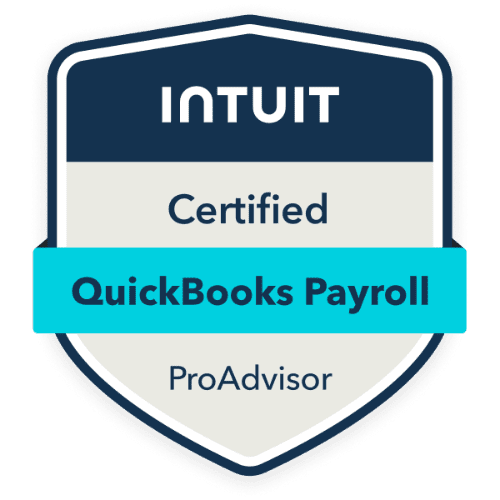Running a small business means juggling countless responsibilities while managing unpredictable cash flow. One month you’re celebrating strong sales, the next you’re scrambling when a major customer delays payment or your point-of-sale system crashes during peak hours.
A small business emergency fund is your financial lifeline—cash reserves specifically set aside for unexpected expenses, revenue shortfalls, or time-sensitive opportunities. Unlike working capital or growth funds, this money serves one critical purpose: keeping your business operational when the unexpected happens.
If you’re operating without emergency reserves (and 60% of small businesses do), here are seven compelling reasons why building a business emergency fund should be your top financial priority.
1. You’ll Survive Cash Flow Disruptions
Small businesses face unique cash flow challenges that can threaten operations overnight. A major customer might extend payment terms from 30 to 90 days. Seasonal fluctuations could last longer than expected. Economic downturns might reduce customer spending across your entire market.
Without emergency reserves, these revenue disruptions can force difficult decisions: laying off employees, closing temporarily, or taking on expensive debt. With a properly funded emergency account, you can maintain operations while working to restore normal cash flow patterns.
2. You’ll Retain Valuable Employees During Tough Times
Your team is your most valuable asset, and losing skilled employees during temporary financial stress can cripple your recovery. When you have emergency funds, you can maintain payroll during revenue dips, keeping your trained staff ready to capitalize when business rebounds.
The cost of recruiting, hiring, and training replacement employees far exceeds the investment in maintaining your existing team. Your emergency fund protects the human capital that drives your business success.
3. You’ll Handle Equipment Failures and Operational Emergencies
Critical equipment doesn’t fail on schedule. Your computer network crashes during tax season. The delivery truck breaks down before your biggest shipment. Your storefront’s HVAC system dies during a heat wave.
These operational emergencies can halt business operations and damage customer relationships. Emergency funds allow you to address these issues immediately—getting repairs done quickly, renting temporary equipment, or purchasing replacements without disrupting service.
4. You’ll Make Strategic Decisions Instead of Desperate Ones
Financial stress clouds judgment and forces reactive decision-making. When you’re not constantly worried about covering basic expenses, you can focus on strategic planning, customer service, and business growth.
Emergency funds provide the mental clarity needed for sound business decisions. You’ll stop making choices based on fear and start making them based on strategy and opportunity.
5. You’ll Seize Growth Opportunities Quickly
The best business opportunities often come with tight deadlines. A competitor’s lease becomes available in your ideal location. A supplier offers significant bulk discounts. A talented employee becomes available but needs immediate hiring.
Without readily available funds, these opportunities slip away to competitors who can act quickly. Your emergency fund transforms from a safety net into a competitive advantage.
6. You’ll Avoid Expensive Emergency Financing
When small businesses face unexpected expenses without cash reserves, they often resort to costly financing: high-interest business credit cards, merchant cash advances, or emergency loans with unfavorable terms and personal guarantees.
These expensive solutions often create bigger problems than the original emergency. Your emergency fund eliminates the need for these costly Band-Aid fixes.
7. You’ll Build Credibility with Lenders and Suppliers
Substantial cash reserves demonstrate financial responsibility to lenders, suppliers, and potential partners. Business loan applications are more likely to be approved when you show strong cash management. Suppliers may offer better terms when they see your financial stability.

How Much Should Your Small Business Save?
Financial experts recommend small businesses maintain three to six months of operating expenses in emergency reserves. Calculate your monthly fixed costs: rent, utilities, payroll, insurance, loan payments, and essential operating expenses.
Higher-risk businesses should save more: Seasonal businesses, those dependent on few customers, or industries prone to economic volatility should target six months of expenses.
Building Your Business Emergency Fund
1. Start with a separate business savings account.
Open a separate high-yield business savings account dedicated exclusively to emergency reserves. Keep these funds completely separate from operating capital.
2. Start with consistent monthly contributions.
Even a $200-$500 monthly investment builds substantial reserves over time. Automate transfers to ensure consistent funding.
3. Redirect windfalls.
Use tax refunds, insurance settlements, or above-budget profits to accelerate your emergency fund growth.
4. Cut unnecessary expenses temporarily.
Review your monthly spending and redirect money from non-essential expenses to your emergency fund until you reach your target.
5. Make it a line item in your budget.
Treat emergency fund contributions like any other business expense that must be paid each month.
When to Use Your Emergency Fund
Your business emergency fund should only be used for genuine business emergencies—situations that are unexpected, necessary, and threaten your ability to operate. This includes:
- Sudden revenue drops that affect your ability to pay bills
- Critical equipment failures
- Unexpected major expenses (roof leak, HVAC failure)
- Temporary loss of key clients or funding sources
- Economic downturns affecting your industry
It’s NOT for planned expenses, growth investments, or taking advantage of non-urgent opportunities. Those should come from separate savings or business financing.
The Bottom Line
Every successful small business faces unexpected challenges. Emergency funds provide the financial breathing room to handle crises strategically, rather than desperately. Start building your reserves today—your business’s survival may depend on it.
Remember: hope is not a business strategy. Preparation is.
Need Help Getting Your Finances Organized?

Building an emergency fund is just one piece of solid financial management for your business. If you’re struggling to track cash flow, manage expenses, or simply don’t have time to keep up with your books, that’s where I come in. My bookkeeping services help small businesses maintain clear and accurate financial records, enabling you to make informed decisions about everything from emergency fund contributions to growth investments.
When your books are organized and up to date, building that crucial safety net becomes much more manageable. Ready to get your finances on track? Let’s discuss how I can help your business establish a stronger financial foundation.
This blog post is intended for informational and educational purposes only and should not be construed as financial, tax, or legal advice. Every business situation is unique, and tax laws and regulations are subject to frequent changes. Please consult with a qualified accountant, tax professional, or attorney before making decisions about your business structure or bookkeeping practices. The information provided here is based on current understanding at the time of publication and may not reflect the most recent changes in tax law or regulations.















